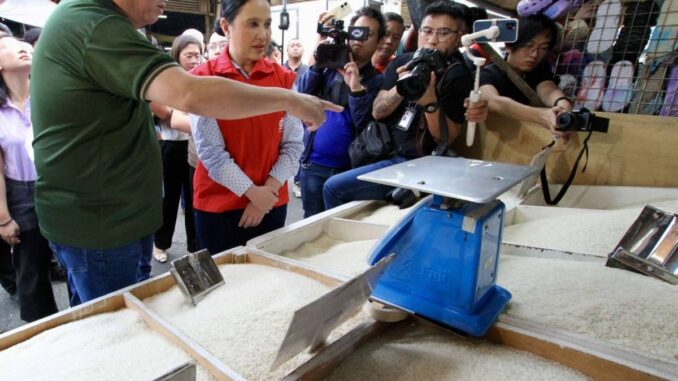
THE Federation of Free Farmers (FFF) wants the tariff on rice imports restored to its old rate, arguing that its reduction to 15 percent from the previous 35 percent has not helped consumers, but instead only benefited rice importers and wholesalers.
On June 20, 2024, President Ferdinand Marcos Jr. issued Executive Order 62 modifying the import duty rates of various commodities, including rice, which was expected to pull down the staple’s retail prices.
The FFF said its analysis, indeed, showed average rice import prices in the second half of 2024 dropped by P9 per kilogram (kg) compared to the first half. The group cited the tax reduction, plus international prices declining by P3/kg.
Yet retail prices of well-milled rice fell by only P2/kg in the same period.
Retailers said their profit margins grew by just P0.30/kg — which meant that, from the P9 import price decrease, P7 went to importers and wholesalers.
The FFF reasoned out that if importers would pass on the savings to consumers, the retail price of 5-percent broken rice could go down to P50 from the current P45.
Regular-milled, or 25-percent broken rice, could also be sold at P45/kg, or P5 lower than the current P50.
This pricing would still allow importers, wholesalers and retailers to have profitable margins, the FFF said.
“If the government cannot discipline importers and wholesalers, it might as well restore the tariff rates to 35 percent. Retail prices should not increase because we will just be removing the extraordinary profits that middlemen have pocketed,” FFF national manager Raul Montemayor said.
He also pointed out there might be a surplus of imported rice in the harvest season in 2025. This will discourage local farmers from increasing their production in the next planting seasons.
The excess supply of imported rice has likewise made local traders to buy palay (unmilled rice) from local farmers at cheaper prices.
The 200,000-strong trade union said it could not understand why the government is allowing this to happen, despite the lowered tariffs proving to be ineffective in bringing down rice prices.
Reduced tariffs also meant reduced funding for farmers under the Rice Competitiveness Enhancement Fund, the group pointed out.


Be the first to comment